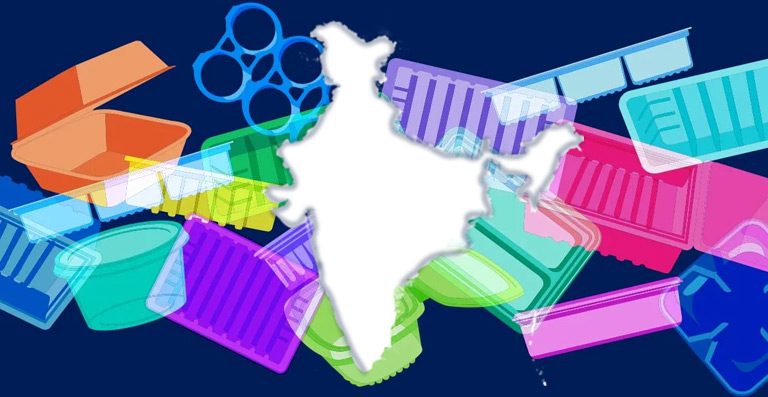Why a Career in the Indian Plastic Industry is Viable
From construction, automobile, medical, packaging, defense, aerospace, and electronics, plastics have played a huge role in the progression of multiple industries. It has contributed significantly to technological advances and recent innovations. The aim of this blog is to encourage you to pursue a career in the Indian plastic industry by breaking down the different segments in the industry and providing you with the latest industry insights.
Where Could You Fit in this Industry?
The plastic industry can be divided into 4 segments:
- Raw Material
- Machinery
- Processing
- Recycling
Students who aspire to work in the plastic industry need to complete their 10+2 with Mathematics, Chemistry, and Physics as compulsory subjects. Upon completion of 10+2, they can pursue a BE course in Chemical or Polymer Engineering or BSc Chemistry. Let us proceed by gaining a brief understanding of the different sectors.
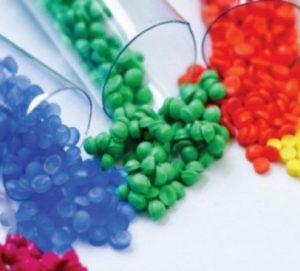
Raw Materials Sector
Raw materials serve as the foundation for a finished plastic product. The role one could expect to be a part of could range from the manufacture of polymers to the color chemistry of masterbatches. The raw material sector provides a great opportunity to provide the ingredients that go behind creating innovative plastic products.
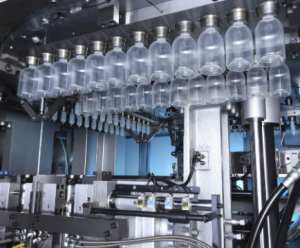
Machinery Sector
A career in this sector would range from testing the machinery, manufacturing of equipment as well as the sale and supply of equipment. With technology at its peak, one can expect to be a part of industry 4.0 and 3D printing as they are starting to play a huge role in the plastic industry.
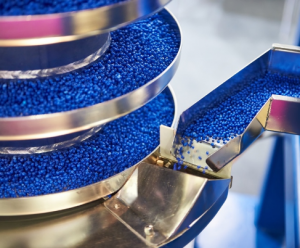 Processing Sector
Processing Sector
The processing sector of the plastic industry is one of the primary sectors of the industry. From automobile parts to medical packaging and equipment, you name it; the processing sector is where the raw materials are processed into a finished product. For Engineers, graduates, and apprentices, a career in this sector will provide them with a viewpoint of how a finished product is made and sold into the market.
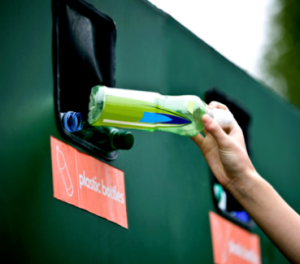 Recycling Sector
Recycling Sector
One of the youngest and most promising sectors, recycling has now become a vital part of the plastic industry. This sector aims to improve sustainability and involves the collection, separation, recycling, and reusing of plastics that have reached the end of their lifecycle. This could range from plastics that have short life applications such as bottles and packaging to plastics that have a longer life such as PVC pipes and plastic used in automobiles. A career in the plastics recycling sector is not only viable but you will also contribute to making a positive impact on the environment.
The real question now arises – Is it a sustainable career option? The answer is yes. Listed below are the latest developments taking place in the Indian plastic industry.
Latest Developments:
- The plastic industry in India is comprised of over 25,000 companies and has employed 3 million people.
- The Indian plastic industry has one of the highest growth rates in the world. The plastic consumption is increasing at the rate of 16% per anum. End-user industries are the primary contributors to this growth with the automobile and packaging sectors being at the forefront.
- The packaging industry is the largest consumer of plastics and ranks at 24% of the overall consumption of plastic in India.
- With the automobile sector heavily dependent on the plastic industry, the manufacture and launch of new cars are expected to drive the demand for plastic.
- The Indian plastic industry is expected to have foreign investments of $80 billion.
From the above-mentioned developments, it is clear that the Indian plastic industry will continue to grow and support various end-user industries. Keeping this in mind, a career in the plastic industry is viable and sustainable, whichever segment you find yourself in.
Leave a Reply Cancel reply
Recent Posts
- Understanding The Materials That Are Used To Build Plastic Toys
- All You Need To Know About Food-grade Plastics
- A Glance At The Materials That Boost The Performance Of Plastics
- Understanding The Importance Of Exploring New Business Opportunities In The Plastic Industry
- Understanding The Importance Of Investing in R&D For The Plastic Industry
Categories
- 3D Printing
- AIPMA
- Automation
- Automobile Sector
- Bio Plastics
- Environment
- Innovations In Recycling
- Latest Innovations
- Molds & Dies
- News
- Packaging Industry
- Plastic
- Plastic Application
- Plastic Industry
- Plastic Market
- Plastic Myths
- Plastic News From The World
- Plastic Packaging
- Plastic Products
- Plastic Recycling
- Plastic Solar Cells
- Plastic Toys
- Plastic Waste
- Plastic World
- Plastics
- Plastics And Their Applications
- Plastics In Agriculture
- Plastics In Healthcare
- Plastics In Medical Industry
- Plasticulture
- Processing Machinery
- Recycling Machines
- Robotics
- Uncategorized
- Virtual Reality
Archives
- November 2023 (3)
- October 2023 (2)
- September 2023 (3)
- August 2023 (3)
- July 2023 (3)
- June 2023 (3)
- May 2023 (2)
- April 2023 (2)
- March 2023 (2)
- February 2023 (2)
- January 2023 (2)
- December 2022 (3)
- November 2022 (1)
- October 2022 (1)
- September 2022 (2)
- August 2022 (1)
- July 2022 (3)
- May 2022 (3)
- March 2022 (2)
- February 2022 (1)
- January 2022 (1)
- September 2021 (2)
- August 2021 (3)
- July 2021 (4)
- June 2021 (4)
- May 2021 (3)
- April 2021 (2)
- March 2021 (4)
- November 2019 (8)
- October 2019 (8)
- September 2019 (8)
- August 2019 (8)
- July 2019 (8)
- June 2019 (8)
- May 2019 (8)
- April 2019 (8)
- March 2019 (8)
- February 2019 (11)
- January 2019 (8)
- December 2018 (8)
- November 2018 (12)
- October 2018 (12)

